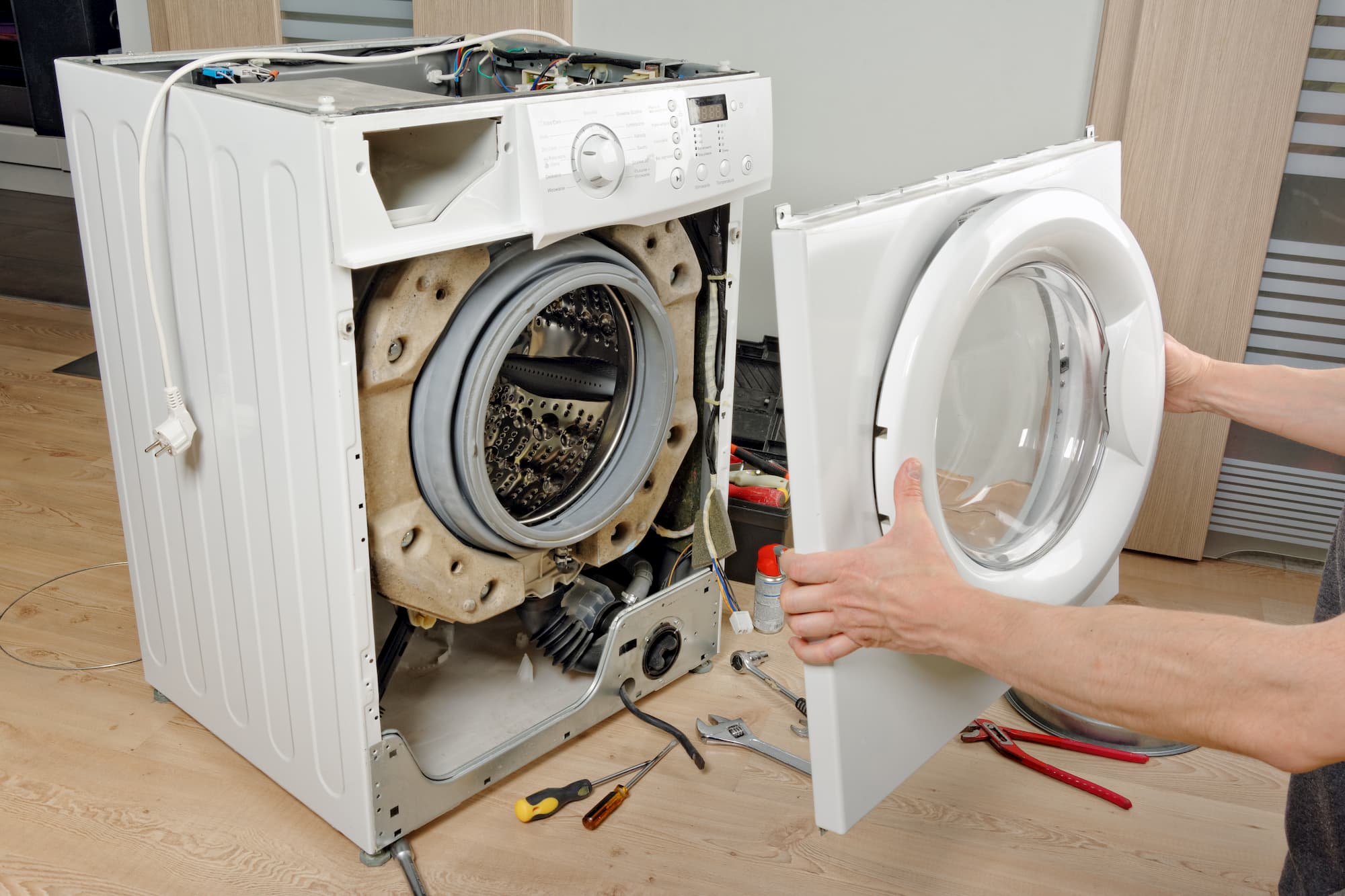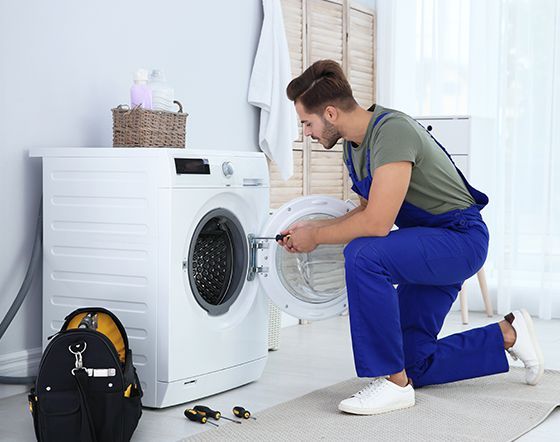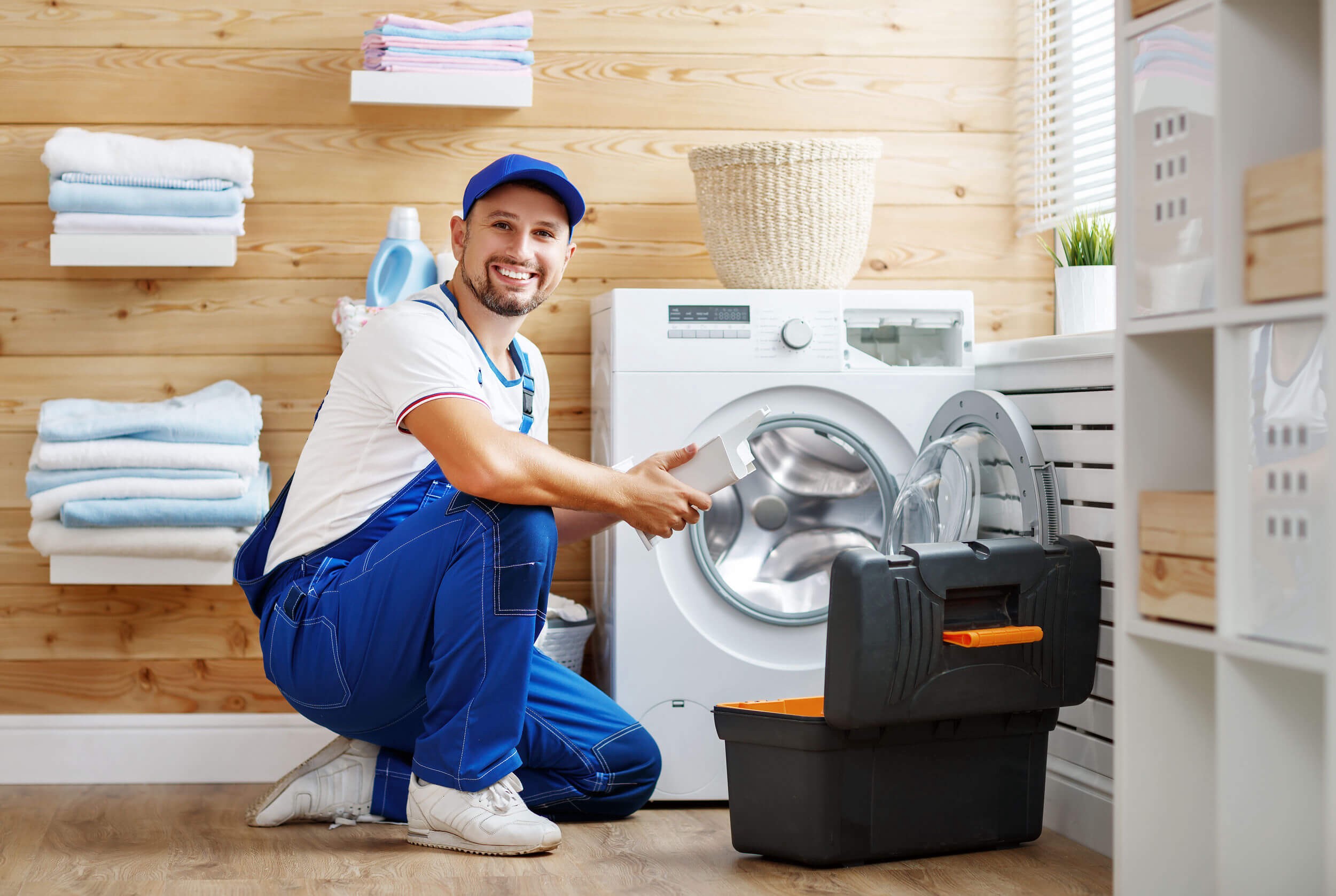A washing machine is one of the most essential appliances in any home. When it malfunctions, it can feel like a serious disruption to your daily routine. Fortunately, many washing machine problems can be diagnosed and fixed without calling a technician immediately. Whether you’re searching for washing machine repair near me or you simply want to troubleshoot common issues yourself, this detailed guide will help you understand the most up-to-date solutions for the most common washing machine failures. In this article, we’ll explore eight common washing machine problems and offer practical, actionable advice so you can keep your appliance running efficiently.
Common Washing Machine Issues and How to Fix Them
Washing Machine Not Turning On
If your washing machine refuses to power up, there are a few practical checks you can do before calling for help. Start by ensuring the machine is properly plugged into a working power outlet. Check the power cord for visible damage like fraying or burns, and if you discover any signs of wear, it’s better to replace the cord entirely for safety. Another common issue is a tripped circuit breaker; simply reset the breaker to restore power. Many modern machines also have built-in safety features that prevent them from starting, such as a defective door latch sensor, so don’t overlook the lid switch as a potential culprit.
Washing Machine Not Spinning
When your washing machine fills with water but doesn’t spin, an unbalanced load is often to blame. Clothes clumped to one side can make the drum off-balance, preventing the spin cycle. Redistributing the clothes evenly can quickly resolve this issue. However, a damaged drive belt or a defective lid switch can also cause the drum not to spin. If you can hear the motor running but the drum is still stationary, it’s a clear sign that the belt may need replacement. Additionally, modern machines have safety sensors that detect improper balance, so reloading correctly is often an easy first step.
Washing Machine Leaking Water
Water leaks can lead to serious damage if ignored, so they require immediate attention. Begin by inspecting the water inlet and drain hoses for any loose connections or cracks. Even a small tear in the hose can cause substantial leakage during a cycle. Check the door seal, especially on front-loading machines; accumulated dirt, hair, or soap scum can prevent a proper seal and allow water to escape. Replacing a damaged gasket can usually be done at home, but if the issue stems from a clogged drain pump or damaged tub, a professional repair technician will likely be required.
Washing Machine Not Draining Properly
If you notice water still sitting in the drum after the wash cycle, there could be a drainage issue. The most common cause is a clogged drain hose that restricts water from emptying properly. Remove the hose, flush it out, and check the filter for debris like lint, hair, or coins. Some machines feature a drain pump that can also clog or fail, which will require replacement. Straighten any kinks in the hose as well, as a kinked drain line can slow or stop water flow entirely. Keeping the drain system clean will help your machine run smoothly and prevent long-term damage.
Washing Machine Making Loud Noises
An unusually noisy washing machine can be caused by foreign objects or worn parts. Coins, keys, and other small items left in pockets can get trapped between the drum and the tub, creating loud clanking or scraping noises. Remove these carefully to prevent damage. However, if your machine is making loud knocking or grinding noises during the spin cycle, this could indicate a more serious issue, such as worn-out drum bearings or a failing motor. Bearings help keep the drum stable; if they wear out, it can cause significant vibration and noise. In these cases, it’s often better to contact a repair technician for a proper diagnosis.
Washing Machine Emitting a Bad Odor
If you notice a musty or foul smell coming from your washing machine, it’s usually a sign of mildew and detergent buildup. Run an empty cycle with vinegar and baking soda once a month to keep the drum clean and odor-free. Pay special attention to the detergent dispenser and rubber door gasket, where grime and mold often accumulate. Cleaning the drain filter regularly will also prevent unpleasant smells. Modern machines are more water-efficient, which can lead to slower evaporation and trapped moisture. Keeping the door ajar between washes can improve air circulation and help prevent odor buildup.
Washing Machine Not Filling with Water
When the drum isn’t filling properly, the issue often lies with the water inlet valve or water supply. Check that your home’s water pressure is adequate and that the inlet valve is not clogged with sediment. You can remove the valve screen and clean it thoroughly if you see debris. If water pressure is fine but the issue persists, a defective pressure switch or a clogged hose may require replacement. Many newer machines also feature water level sensors that can malfunction, so ensuring these components are clean and intact is vital for proper operation.
Washing Machine Vibrating Excessively
Excessive vibration is a common complaint, especially with front-loading machines. Begin by checking that your machine is sitting on a stable, level surface. Adjust its feet as needed and make sure the laundry is evenly distributed inside the drum. Worn shock absorbers or dampers may also cause excessive movement during the spin cycle. Replacing these parts is a moderately difficult task and might require a professional’s assistance. Always aim to balance your laundry loads and use the proper cycle for different types of fabrics to prevent wear and tear on the machine.
When to Call a Professional for Washing Machine Repair?
If you’ve tried these troubleshooting steps and your washing machine still isn’t functioning properly, it’s time to contact a professional repair service. A certified repair technician can diagnose complex electrical or mechanical issues that may require specialized tools and expertise. For residents of Dubai, Sharjah, and Ajman, AL Bahlool offers reliable washing machine repair services with quick turnaround times and competitive rates. Whether you need help with a noisy washer, a water leak, or a more serious fault, we’re here to help. Contact us at +971 56 328 2734 or visit our website at https://albahlool.com/washing-machine-repair-services/ for an estimate.
FAQs
Why is my washing machine not starting?
First, check that your washing machine is plugged into a working outlet and inspect the power cord. Reset the circuit breaker if needed. If the issue persists, a repair technician can check the control board or door switch.
How do I fix a washing machine that won’t drain?
Clean the drain hose and check for clogs in the drain pump. Hair, coins, and lint are common culprits that can prevent water from draining properly.
What causes a washing machine to leak?
Leaks often occur due to loose hose connections, damaged door seals, or clogged drain pumps. Carefully inspect each component and tighten or replace as needed.
Why does my washing machine make loud noises?
Strange noises can result from coins or other debris in the drum. If the noise is more mechanical, such as grinding or knocking, worn bearings or a defective motor may require repair.
How often should I clean my washing machine?
To prevent odors and buildup, clean your washing machine at least once a month using vinegar and baking soda. Remove and clean the detergent dispenser and drain filter as part of this process.
What should I do if my washing machine vibrates excessively?
Ensure the washer is level and the load is balanced. If vibrations persist, damaged shock absorbers or springs may need replacement.
Can I repair my washing machine myself?
Simple problems like clogged hoses can often be handled at home. However, for electrical faults or motor issues, contact a qualified repair technician to ensure safety and proper repair.





